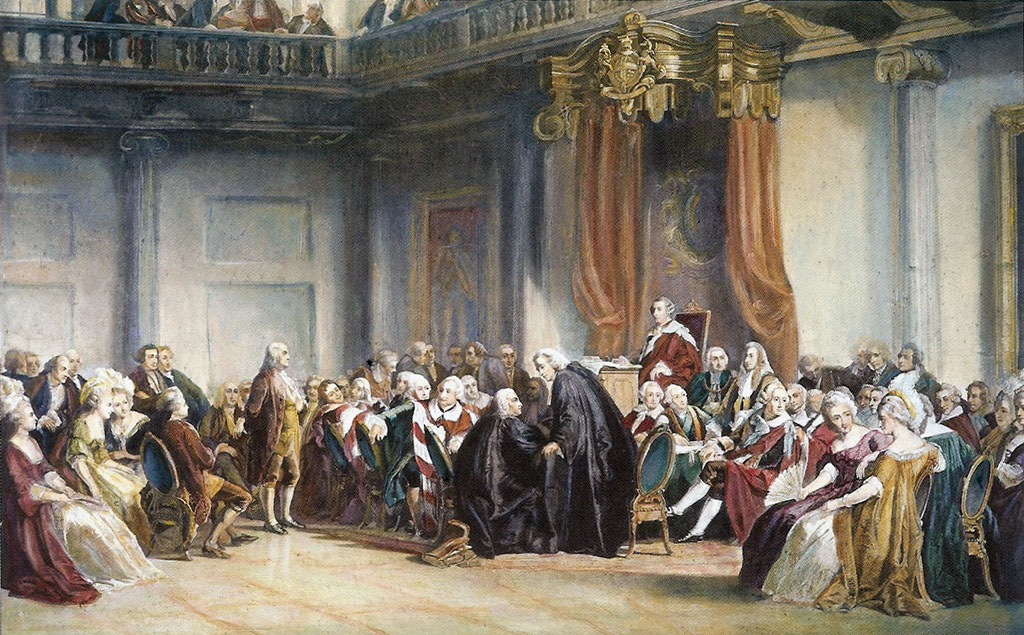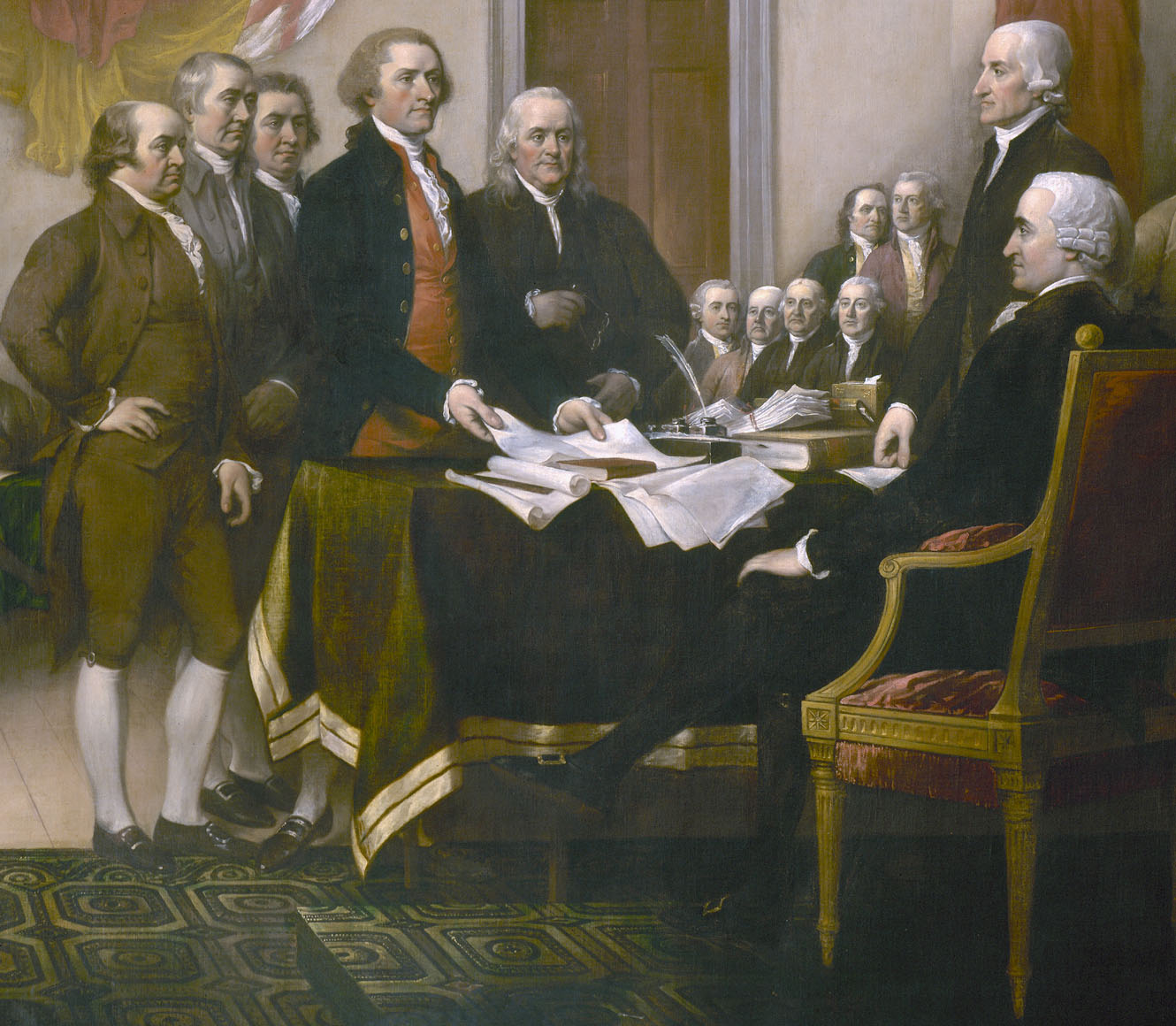Lone Traveler Parts 10 11 and 12The Singular Life Of Benjamin Franklin
By Robert A. Crimmins - Parts 10 (1762 to 1764 – Briefly Home), 11 (1764 to 1775 – A New World) & 12 (1775 to 1776 – Revolution)
Benjamin Franklin’s letter to Admiral Howe’s sister From Chapter 21:
The events of December of 1774 were a ray of hope. Howe, Barclay and Fothergil were discussing the details with Franklin and Lord Dartmouth had issued approving statements. Rumors the crisis might be resolved sent stocks on the London exchange soaring. Franklin saw other elements of ministerial maneuvers and Court intrigue as others approached him and offers were extended. Thomas Pownall, an ex-governor of Massachusetts and a member of Parliament told Franklin Lord North was coming around even though he was still no friend of Franklin. Pownall pictured himself as an envoy to America with Franklin at his side. Howe, meanwhile, resorted to the time tested British custom of bribery and told Franklin if he cooperated, the government would reward him. Of this attempt Franklin wrote, “This to me was what the French call ‘spitting in the soup.’ ”
In the end, the government’s attempts to deal with the crisis through second and third parties was only further evidence of their incompetence. Now that Americans were united, the authority to negotiate for the American side was with the Continental Congress. Franklin could not alter the demands and conditions imposed by Congress. He could only restate them. This he did.
In one of the final days of 1774 Franklin sent to Howe’s sister one of greatest notes he ever wrote. That the ministry chose to ignore its direction and sentiment is one of the most profound errors ever committed by any government in history.
It is supposed to be the wish on both sides not merely to put a stop to the mischief at present threatening the general welfare, but to cement a cordial union, and remove, not only every real grievance, but every cause of jealousy and suspicion.
With this view, the first thing necessary is to know what is, by the different parties in the dispute, thought essentially necessary for the obtaining such a union.
The American Congress in their petition to the King have been explicit, declaring that by a repeal of the oppressive acts therein complained of, the harmony between Great Britain and the colonies, so necessary to the happiness of both and so ardently desired of them, will, with the usual intercourse, be immediately restored. If it has been thought reasonable here to expect that, previous to an alteration of measures, the colonies should make some declaration respecting their future conduct, they have also done that by adding: That when the causes of their apprehensions are removed, their future conduct will prove them not unworthy of the regard they have been accustomed in their happier days to enjoy.
For their sincerity in these declarations, they solemnly call to witness the searcher of all hearts.
If Britain can have any reliance on these declarations (and perhaps none to be extorted by force can be more relied on than these, which are thus freely made), she may without hazard to herself try the expedient proposed, since if it fails she has it in her power at any time to resume her present measures.
It is then proposed: That Britain should show some confidence in these declarations, by repealing all the laws, or parts of laws, that are requested to be repealed in the petition of the Congress to the King;
And that at the same time, orders should be given to withdraw the fleet from Boston, and remove all the troops to Quebec or the Floridas, that the colonies may be left at perfect liberty in their future stipulations.
That this may, for the honour of Britain, appear not the effect of any apprehension from the measures entered into and recommended to the people by the Congress, but from good will, and a change of disposition towards the colonies, with a sincere desire of reconciliation, let some of their other grievances, which in their petition they have left to the magnanimity and justice of the King and Parliament, be at the same time removed, such as those relating to the payment of governors’ and judges’ salaries, and the instructions for dissolving Assemblies, etc.
And to give the colonies an immediate opportunity to demonstrating the reality of their professions, let their proposed ensuing Congress be authorized by government (as was that held at Albany in 1754), and a person of weight and dignity of character be appointed to preside at it on behalf of the Crown.
And then let requisition be made to the Congress, of such points as government wishes to obtain for its future security, for aids, for the advantage of general commerce, for reparation to the India Company, etc., etc.
A generous confidence thus placed in the colonies will give ground to the friends of government there, in their endeavours to procure from America every reasonable concession or engagement, and every substantial aid that can fairly be desired.
Lord Howe forwarded the message to the ministry. They, through Howe, posed few questions and those they did ask left Franklin cold. Earlier in 1774 Franklin offered to personally pay for the tea that was tossed into Boston harbor. Now the ministry asked for the payment and Franklin replied that it should have been accepted when offered. Now “twenty times as much injury” had been done to the people of Boston by blocking their port and they would likely not approve of another American being further bled.
© Robert A. Crimmins, Felton, Delaware, USA
Lone Traveler
CONTACT ROB CRIMMINS
Click on the icon to purchase the Kindle version of the book at Amazon.




